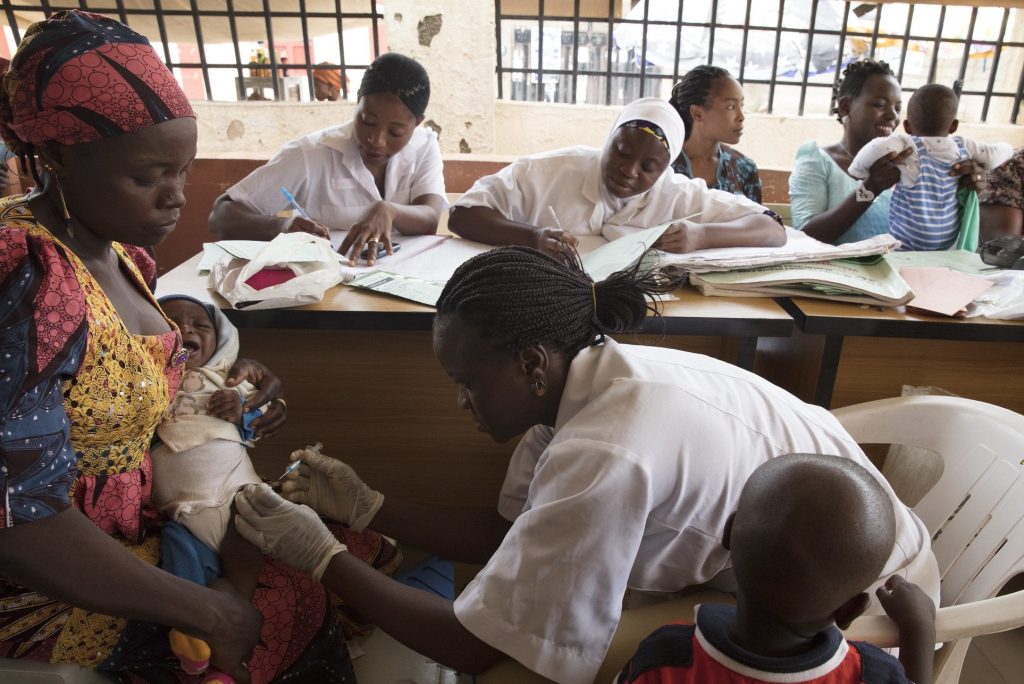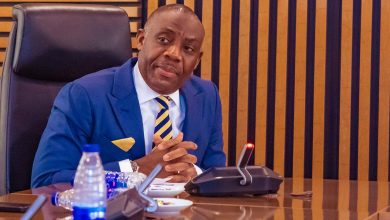Nigeria’s Health Crisis: Where Does the Money Go?
Nigeria’s health system is back in the news, not because of a new outbreak, but because of poor management and weak accountability. The House of Representatives recently opened an investigation into more than $4.6 billion in health grants and aid received from the Global Fund and the United States Agency for International Development (USAID) between 2021 and 2025.

Despite this massive funding, health outcomes in Nigeria remain some of the worst in the world. Reports from the World Bank and the World Health Organization show that the average Nigerian lives to just 54 years, one of the lowest life expectancies on earth. Nigeria also accounts for 26 percent of global malaria cases, 31 percent of malaria deaths, and ranks third worldwide in HIV-related deaths. Every year, more than 50,000 people die from AIDS-related illnesses, and the country remains first in Africa for tuberculosis, accounting for 4.6 percent of global TB cases.
These figures reveal a sad truth. Billions of dollars have been given to improve Nigeria’s health system, yet millions of citizens still struggle to get clean water, basic drugs, safe delivery for mothers, and access to simple medical care. Many die from diseases that can be prevented, not because medicine does not exist, but because those in charge fail to use resources properly.
A minister’s call to action
To address this crisis, the federal government announced the release of ₦32.9 billion under the Basic Health Care Provision Fund (BHCPF) to strengthen primary healthcare across all wards in the country.
In a message titled “The Red Letter: A National Call to Protect Our Health,” the Coordinating Minister of Health and Social Welfare, Prof. Muhammad Pate, said the money has already been sent directly to local health facilities.
“This money is not sitting in Abuja,” he said. “It has already begun its journey into the accounts of primary health care facilities in every ward across Nigeria. It is your clinic’s money. It is your community’s chance. It is your country’s promise.”
He urged Nigerians to help monitor how the money is spent. “Go to your health facility. Join the committee. Review the plan. Demand openness,” he said. “Each naira in this ₦32.9 billion is a seed. When you nurture it with vigilance and pride, it grows into medicine, safe births, better infrastructure, and lives saved.”
While the Minister’s message gives hope, the real challenge is how the money will be used in local communities. Many health centres still do not have enough workers, medicine, or working equipment. If there is no close monitoring, this money may end up wasted like many efforts before it.
Just a few days before Professor Pate released his Red Letter, both the Senate and the House of Representatives had already questioned how huge health funds were being spent. Their concerns show that Nigerians are tired of hearing about billions released without seeing real results. We believe this is the time for open reporting, honest management, and proof that these funds truly improve people’s lives.
Lives behind the numbers
Behind these statistics are real people, mothers, children, and families whose lives end too soon. At the 2025 Gatefield Health Summit in Abuja, the message was clear: Nigeria’s health crisis is not just about numbers; it is about human lives.
Adewumi Emoruwa, Chief Executive Officer of Gatefield, said the country’s average lifespan of 54 years should alarm everyone.
“If you’re 25 or 27 in Nigeria today, you’re already at your half-life,” he said. “This is not just about when people die. It’s about how well they live.”
He explained that while countries like Switzerland spend $12,000 per person on healthcare each year, Nigeria spends around $5.
“You need to gather 2,500 Nigerians before you equal the healthcare budget of one Swiss citizen,” he said.
“As long as we underfund our system, we will keep depending on luck for survival.”
Experts also warned that more than 70 percent of Nigerians pay for healthcare out of pocket, forcing families into poverty. They expressed worry over the 97 percent cut in the national family planning budget between 2024 and 2025, saying it threatens women’s health and the country’s future.
“Women’s health is not a side issue,” Emoruwa said. “If women aren’t healthy, families aren’t healthy. And if families aren’t healthy, nations can’t thrive.”
This discussion shows that lack of funding and poor management are not just paperwork problems, they are costing lives every day.
Parliamentary action and the demand for answers
Before the Minister’s Red Letter, lawmakers had already raised alarm over how billions in health aid were being spent. During plenary, Rep. Philip Agbese (APC, Benue) sponsored a motion calling for an investigation into all funds received from 2021 to 2025.
He revealed that Nigeria received $1.8 billion from the Global Fund, $2.8 billion from USAID, and $6 billion from the U.S. President’s Emergency Plan for AIDS Relief (PEPFAR) to fight HIV, tuberculosis, and malaria. Yet, the country still ranks among the worst globally for these diseases.
“With this level of investment in our health sector, it is unacceptable that Nigeria still bears such a heavy disease burden,” Agbese said. “If something drastic is not done, we may continue to lose lives and fail to meet the 2030 target for eliminating HIV, TB, and malaria.”
He also reminded his colleagues that the National Assembly has the power under Sections 88 and 89 of the Constitution to question any ministry, agency, or organization about how public money is spent. The House Committee on HIV/AIDS, Tuberculosis and Malaria Control has now been directed to investigate and report back within four weeks.
In the Senate, lawmakers expressed similar concerns. Senate President Godswill Akpabio demanded more transparency from health agencies and donors, saying the legislature would not tolerate “mismanagement in a sector where lives depend on every naira spent.”
Both the Senate and the House also asked the Coordinating Minister of Health and Social Welfare to submit detailed spending records and implementation plans for all grants received. These combined actions show a growing demand for openness, coordination, and real results in Nigeria’s health system.
These actions show that Nigeria’s leaders are aware of the crisis, but awareness is not enough. What Nigerians now demand is for them to follow-through. Investigations must lead to reform, and promises must become results.
Our stand
It should not take billions in foreign aid for citizens to still die from preventable diseases. Health is not a favor, it is a right.
Government at all levels must stop the cycle of announcements without accountability. The Basic Health Care Provision Fund must be tracked to the last kobo, and donor agencies must insist on measurable results. Parliament must ensure that its investigations do not end in paperwork.
Health officials, community leaders, and citizens must all treat this crisis as a national emergency. If Nigeria truly wants a “renewed hope” in health, then hope must start with honesty and end with impact.



